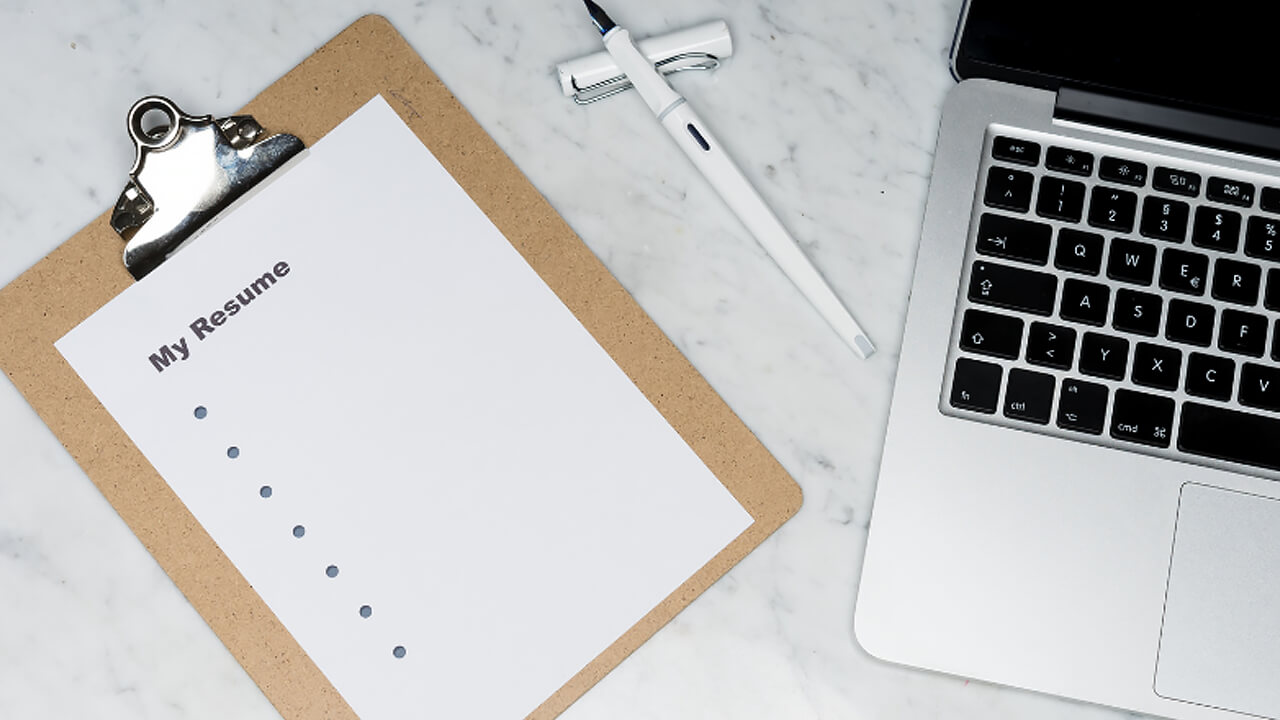The Bureau of Labor Statistics expects the employment of news analysts, reporters, and journalists to grow 6% from 2020 to 2030 – with 5,400 job openings each year, on average. But once you find a job listing that appeals to you, how can you stand out among other candidates?
Whether you’re graduating from journalism school and getting ready to enter the job market or are looking to apply at a new outlet, updating your journalism resume is key to catching a potential employer's eye.
Your resume is your introduction to employers and as a writer, you should be working to grab their attention right from the start.
We have a few resume tips for leveling up your own when applying for a journalism job.
What to Include in Your Journalism Resume
Contact Details
It seems like a no-brainer, but that makes it one of the easiest things to overlook. Make sure to include your name, email address, phone number, and professional website and/or social profiles (as long as they’re professional).
Haven’t created a portfolio yet? Here’s what you should (and shouldn’t) include in your writing portfolio.
Professional Summary
Don’t bury the lede. Keep this intro brief but make it clear why you’re qualified and what you hope to accomplish. This should be a short summary of your background, career goals and why you’re a good fit for the role. Flex your writing skills and tell a story to catch a potential employer’s attention in just a few sentences.
If you’re just starting out and don’t have much experience to include – make this a career objective rather than a summary.
Language Tailored to the Job
One resume does not fit all job listings. Each job is unique and the required skills can differ from position to position, so your resume should be adjusted for each one. Really focus on the unique skills that make you a good fit for this job and make sure to utilize some of the keywords from the job listing in your resume.
Pro tip: Create one master resume that you update as needed and target to specific job openings.
Prior Experience
If you’re just coming out of journalism school, include any internships or other positions with transferrable skills (meeting deadlines, talking to customers, multi-tasking, etc.). Include a bulleted list of your job duties for each position. But a basic list of duties isn't all that should fall under this section.
- Include metrics and goals: If you have relevant metrics to include, do it (think publishing cadence or engagement numbers, for example). And explain the reasoning behind certain tasks. If you wrote for the school newspaper, what was the purpose of your articles? Informing readers about school policy? Encouraging subscriptions?
- Include success stories that will catch an editor’s eye: Did you break a story? Was it picked up by other outlets? Did it make the front page? Let the employer know about your accomplishments.
- Include freelance work: But make sure it’s organized. You can group the experience by beat, geography, length, breaking news vs. features, etc.
Education
List the school you attended, the degree(s) you earned and the year you graduated. If you have special certifications, school projects or involvement in student organizations, add those here too if they are relevant to the job and your qualifications for it.
Related Skills
A journalism job isn't just about writing and skills in related areas will help you and your resume stand out. Think about your familiarity with style guides (AP or MLA, for example), software (WordPress or other CMS platforms), technical writing, coding, social media, digital savvy, research, and language proficiencies.
Clean Copy
It should go without saying that you need to proofread your resume. You’re applying for a job as a writer and your resume should be free of grammatical errors and typos. Get a second or even third set of eyes on it before submitting it.
What You Can Leave Off Your Resume
Here are few things that aren't necessary when putting together a standout journalism resume:
- Personal interests: Employers don’t need this in a resume, save it for the interview.
- Mix of fonts/colors or overuse of bolding/italics: Keep the design simple and easy to read. Embrace the white space.
- Jargon: Here are some tips for cutting the corporate speak and keeping it conversational.
Some Advice from Working Journalists
Once your stellar resume lands you an interview that results in a job offer, the learning and growing don’t stop there.
We asked journalists for their advice for those entering the job market. Here’s what a few of them had to say…
"Listen to your mentors. They'll be your compass and guide you in the right direction. Writing stories which have a global audience is an incredible feeling but writing stories which can help educate a community, bring light to a local issue or hold a local politician or government agency accountable for their actions will leave you with a profound sense of accomplishment."
"Expect disruption! …These days, I make a living where I thought no money was to be had: an online-only newspub. I'm shooting more video than I write some days. But I still get to write serious journalism and bring it in front of even more people than I did before -- ultimately the goal! So my advice would be to not get stuck in one way of doing journalism, and always be open to reaching people where they are, and how they prefer to get their news."








